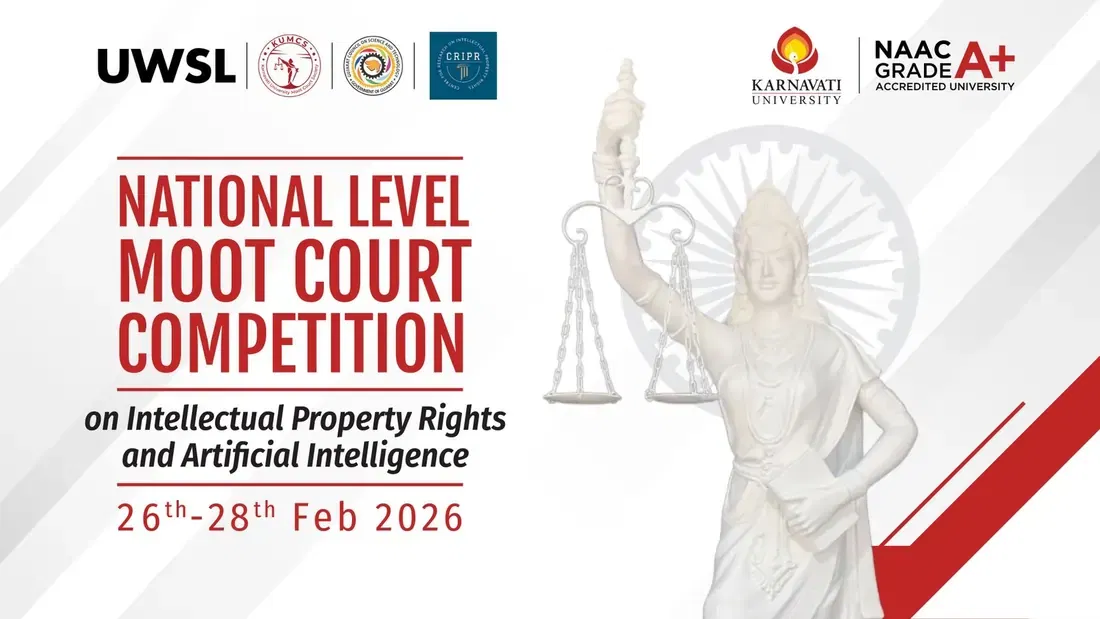Criminal law courses deal with offenses against a person, society, or the state. The article provides all criminal law course descriptions.
Criminal law courses are one of the most well-known legal specialisations that include the study of laws, statutes, and the judicial process used to try criminals and protect the public from damage. These courses provide students with an understanding of the criminal justice system, the purpose of law enforcement, and the various stages of criminal procedures.
Students may pursue these law courses at all academic levels, including those leading to bachelor's, master's, and postgraduate degrees. Many online criminal law courses in India are equally popular as other bachelor's and diploma courses.
Read More: Complete List of Law Courses
Top 7 Criminal Law Courses
Criminal law courses deal with criminal offences and their punishments. A criminal law course aims to familiarise students with the fundamentals, theories, and practices of criminal law. All the popular criminal law courses are highlighted in the table below.
| Course | Duration | Degree Type | Average Fees (INR) |
| BA Criminology | 3 years | Bachelor | INR 50,000 - INR 5,20,000 |
| Diploma in Criminology | 1 year | Diploma | INR 10,000 - INR 45,000 |
| LLM Criminal Law | 3 years | Postgraduate | INR 3,00,000 - INR 6,0,000 |
| Postgraduate Diploma in Criminal Justice | 1 year | PG Diploma | INR 10,000 - INR 55,000 |
| Certificate Course in Advanced Criminal Litigation & Trial Advocacy by Law Sikho | 3 months | Certificate | INR 15,000 |
| Introduction to International Criminal Law by Coursera | 8 weeks | Certificate | INR 3800 |
| Introduction to Criminal Justice by Udemy | 11 months | Certificate | INR 6500 |
Also Read: Business Law Courses in India
A few criminal law course description is provided below:
BA Criminology
BA Criminology in India is a 3-year bachelor's degree that explores crime, behavioural deviance, behavioural science connected to crime, criminal justice administration, and other related areas. Students who meet the college's cutoff are admitted. After completing a BA in Criminology, students may work as crime investigators, social workers, counsellors, prison managers, law enforcement officers, and private detectives.
Diploma in Criminology
The Diploma in Criminology course lasts one year and focuses on criminal theories and the legal aspects of criminal justice. This is one of the best criminal law diploma courses investigating criminal behaviour. There are a variety of jobs available, and students may work as Independent lawyers, investigators, counsellors, Social Workers, and more.
LLM Criminal Law
LLM Criminal Law is a 3-year postgraduate degree with six semesters, each focusing on a different aspect of criminal law. LLM Criminal Law focuses on Constitutional Law, Contract Law, Tort Law, Criminal Law, International Law, Intellectual Property Rights, Jurisprudence, and Current Legal Issues in detail. After completing this course, graduates will be qualified for positions as criminologists, public prosecutors, or defence lawyers.
Postgraduate Diploma in Criminal Justice
The Postgraduate Diploma in Criminal Justice is a one-year diploma tailored to the needs of working professionals or individuals interested in expanding their learning of the criminal justice system. The main objective of this course is to create highly trained professionals.
The laws, statutes, and regulations that define illegal behaviour are studied in this diploma program. A PGD in Criminal Justice graduate may work as a crime intelligence analyst, law reform researcher, drug policy advisor, consumer advocate, environmental protection analyst, and more.
Also Read: Corporate Law Courses in India
Eligibility Criteria for Criminal Law Courses
Students are typically required to have a minimum of a 50% grade average in 12th grade to enrol in any criminal law course. However, the basic eligibility criteria required by criminal law courses in India are outlined below.
- Certificate and diploma courses usually require a recognised 10th or 12th score.
- Undergraduate programs need 10+2 with any stream from a recognised board.
- PG courses require a bachelor's degree in a related domain from a recognised institute with at least 50%.
Also Read: Steps to Become a Lawyer
Criminal Law Courses Admission Process
Criminal law courses teach students about the prohibited activities that endanger the safety and well-being of individuals, organisations, or the public. Students must qualify and enrol in any criminal law course to gain legal knowledge. The admission requirements and procedure sometimes vary, but the standard requirements are listed here.
- The first step is to confirm that students meet all the selected courses' eligibility criteria.
- The next step is to fill out the application form with all the required documents and credentials.
- Students must appear for the relevant entrance exam (if required) and achieve the minimum cut-off.
- The colleges then notify students by releasing the merit list online or on campus.
- Selected students are notified via mail to complete the counselling and document verification rounds.
- Lastly, students must pay the tuition fee set by the institution to confirm the seat and close the admission process.
Also Read: Steps to Become a Judge
Entrance Exams for Criminal Law Courses
Students who wish to take a criminal law course must pass the following entrance examinations. The main purpose of these entrance tests is to assess students' aptitude for the chosen degree. The popular entrance exams for criminal law courses are outlined below.
- CLAT
- AILET
- BHU Entrance Test
- LSAT
- ILI Entrance Test
Read More: Top Law Entrance Exams in India
Criminal Law Courses Syllabus
The criminal law course syllabus includes all aspects of crimes, criminal culpability, criminal defences, the rights of the accused, the criminal process, and the roles of the prosecutor and defence counsel. The core subjects covered in all criminal law courses are mentioned below.
- Indian Penal Code
- Elements of a crime
- Evidence law
- Defences to criminal charges
- Criminology Juvenile Justice
- Criminal procedure
- Human Rights and Criminal Justice
- Crimes against people and property
Also Read: BA Criminology Syllabus
Criminal Law Courses Specialisations
After specialising in criminal law, the lawyer interviews clients, interrogates witnesses, conducts trials, prepares defence cases, and cross-examines witnesses in court. Students can choose the area of specialisation as per their interests. Listed below are popular criminal law specialisations.
- Cyber Crime
- Domestic Violence
- Human Rights
- Crime against Women
- Sexual Abuse
- Criminology and Forensic Science
- Murder, robbery, theft, and kidnapping
- Criminal Trial & Criminal Appeal
- Bail and Criminal Revision
- Anti-Hijacking Matters & Anti-Terrorist Matters
Also Read: Top Government Law Colleges in India
Top Colleges for Criminal Law Courses
Criminal law courses in India are offered at undergraduate, certificate, and diploma levels in many prominent colleges. Given below are the top colleges offering these criminal law courses.
- UniPune
- IGNOU
- Madurai Kamaraj University
- Siddharth College of Law
- Mahatma Gandhi Law College
- NALSAR University of Law
- NEF Law College
Also Read: Top Private Law Colleges in India
Career Options after Criminal Law Courses
Criminal law courses provide students with an in-depth understanding of the criminal justice system and equip them for jobs in law enforcement, criminal defence, prosecution, and other associated fields. Popular professional career options after completing criminal law courses are given below.
| Job Role | Average Salary (INR) |
| Criminal Lawyer | 2 - 7 LPA |
| Criminologists | 2 - 4 LPA |
| Lecturer | 2 - 8 LPA |
| Forensic Science Technician | 2 - 5 LPA |
Also Read: Diploma in Criminology Syllabus










